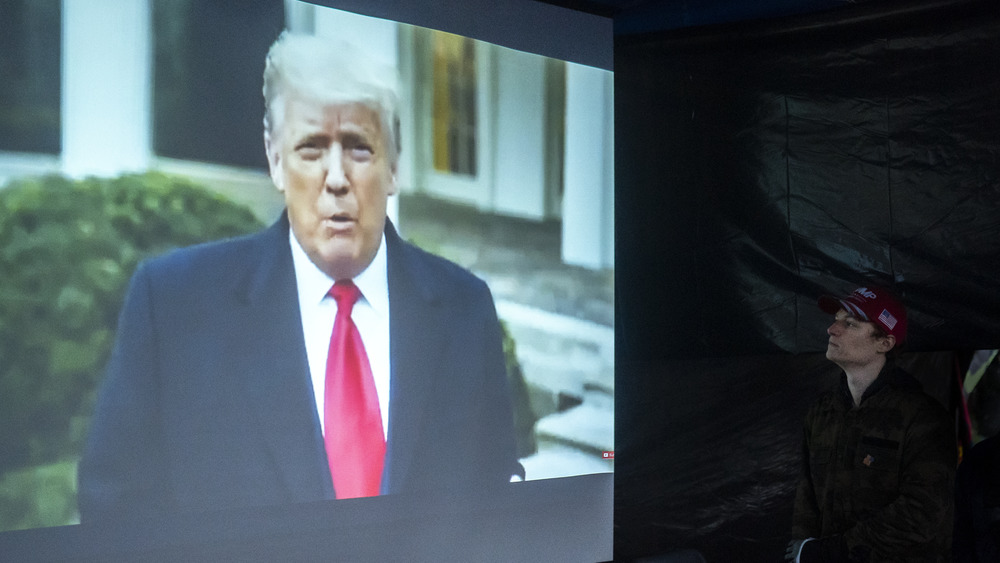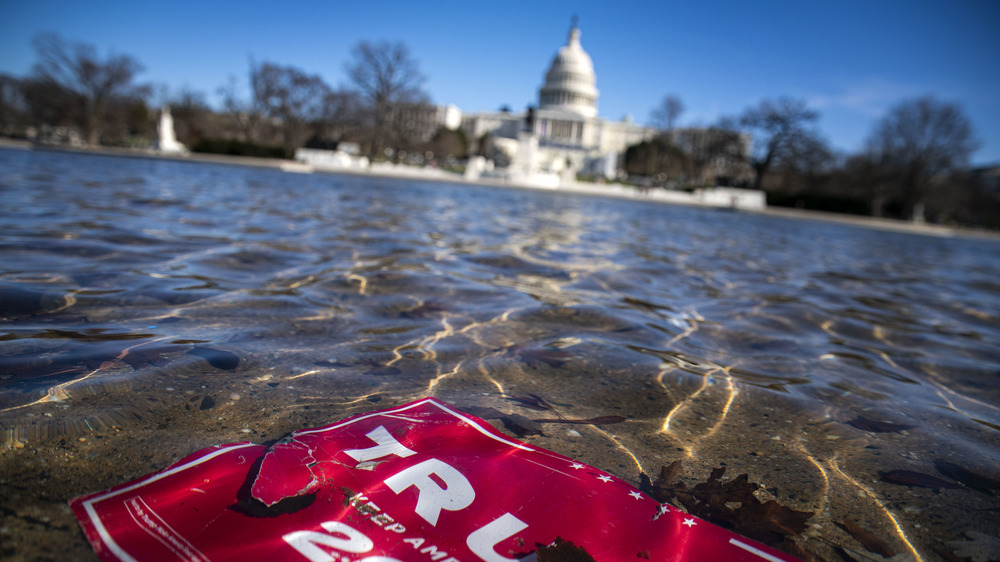Why Trump Might Be Impeached Even After He Leaves Office
With just days to go before the end of the Trump presidency, questions are being asked about whether an impeachment and conviction tied to the riot at the U.S. Capitol on January 6 might be possible. While one Harvard law professor, Cass Sunstein has told NBC News, "I tend to believe it is only for current office holders," other legal and constitutional experts are not as certain.
In a blog post for Just Security, University of North Carolina School of Law Distinguished Professor Michael J. Gerhardt points out that it doesn't make sense for a president to be immune from prosecution for misdeeds he may have carried out while he was president and were discovered after he leaves office. He quotes the sixth president, John Quincy Adams, as saying: "I hold myself, so long as I have the breath of life in my body, amenable to impeachment by this House for everything I did during the time I held any public office" and adds that the comment implies that a public official should be held liable for abuse of power even after he or she leaves office. Gerhardt also adds that a post-term impeachment is one driven by politics and is not mandated by the constitution.
Late impeachments are possible, says expert
Brian Kalt, a professor at the Michigan State University College of Law, says there is precedent for what he calls late impeachments and has even written an extended paper on the constitutionality of the subject. In an academic paper written in 2001, Kalt points out that the Constitution has not been explicit about the timing of an impeachment. But he also adds that a late impeachment might be both "practical and worthwhile" if the offense is serious enough (he uses the word "heinous") and if the stakes are high enough. While the process involving a post-term impeachment has its problems, Kalt also writes that "the constitutional case for late impeachment has more strengths and fewer flaws than the case against it."
In any case, there is a historical precedent for a post-term impeachment involving William Belknap, who was a war secretary under President Ulysses Grant. Belknap was linked to a series of kickbacks and resigned before articles of impeachment were filed against him. That did not stop the House from trying, and the House filed articles of impeachment, accusing the war secretary of "criminally disregarding his duty as Secretary of War and basely prostituting his high office to his lust for private gain" (via U.S. Senate). The Senate eventually voted to acquit him.
A vote to impeach Trump could be held by Tuesday
The New York Times says the House is looking to vote articles of impeachment against Trump by Tuesday, but it may wait to send after President-elect Joe Biden's first 100 days before sending the articles to the Senate. As of Sunday morning, 210 of 222 Democrats have signed the article of impeachment, which charges Trump of "willfully inciting violence against the government of the United States."
There is a separate move to formally censure the president which was separately filed, that its author, Democrat Eleanor Holmes Norton said could be "the only way to send a bipartisan, bicameral message without delay to the country and the world that the United States is a nation of laws."
At least five people have died (via KTLA) as a result of the January 6 riot, which some have now labeled an insurrection (via The Guardian).


